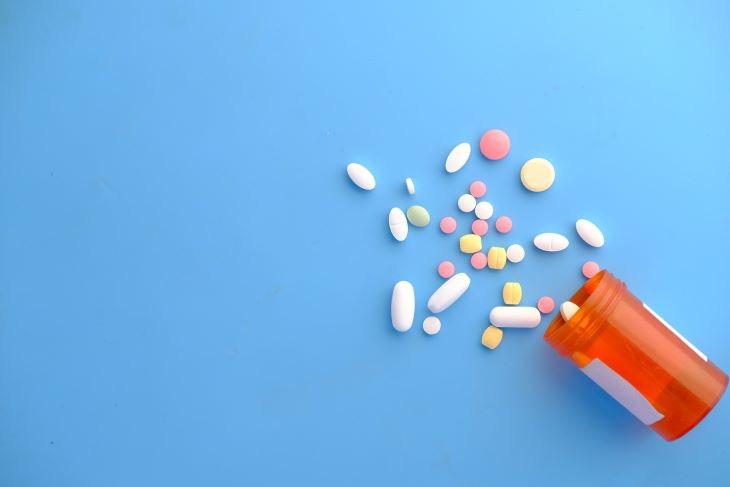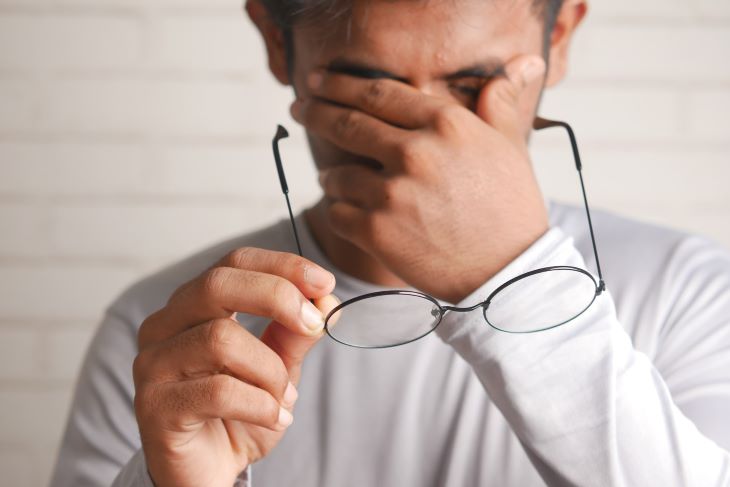- Home
- Addiction Detox
- Alcohol Detox
- Medications Used for Alcohol Detox
Medications Used for Alcohol Detox
Detoxing from alcohol is often the first step in the recovery process for those wanting to recover from alcohol use disorder at a designated rehabilitation facility.
When an individual with a severe addiction to alcohol stops drinking at high levels, they may experience challenging withdrawal symptoms. This is because they have developed a physical dependence.
Alcohol withdrawals can be very difficult if not overseen by a medical professional. For those at a high risk of alcohol withdrawal, doctors at your chosen rehabilitation facility will prescribe specific medications to alleviate anxiety and discomfort.
Medication can also help to minimise the continuation of withdrawal symptoms. Below we touch upon how alcohol withdrawal medication can help ease these.
If you are looking for alcohol rehab, get in touch with our team today. We can offer advice about medications for alcohol detox and arrange immediate admission to a facility of your choice, helping you get back on your feet and away from the clutches of alcohol.
Call today on 0800 088 66 86.
What is a medical detox?

A medically overseen detox refers to the treatment process by which all toxins from alcohol abuse are removed from the body. This process is typically undergone in a treatment facility as it boasts the best chances of recovery.
Here you can access high-quality medical care 24 hours a day. Detoxes aim to prepare you to feel physically stable and well enough to begin psychological healing through therapy.
When a person is addicted to alcohol, their body becomes used to consuming a high amount each day, but this can be reversed with the help of medications for alcohol detox.
When this substance is gradually removed during the detox process, the brain has to adjust to this drop in chemicals. This causes individuals to feel withdrawal symptoms.
By choosing to detox in therapy, your withdrawal symptoms can be effectively managed and minimised through the support of experienced staff. Before your detox begins, you will undergo a medical assessment so that staff can create a personalised programme.
The most effective way to detox is through the professional support of a rehabilitation facility. With the care and support of healthcare professionals, you can look forward to success in sobriety.
At Rehab Recovery, we do not encourage detoxing alone. These attempts are rarely successful and can result in difficult withdrawal symptoms and a lack of motivation to recover going forward.
What are the symptoms of alcohol detox?

When you withdraw from drugs and alcohol, you are likely to experience physical and psychological symptoms such as:
- Sweating
- Runny nose
- Nausea, vomiting, and diarrhoea
- Increased heart rate
- Increased blood pressure
- Headaches
- Stomach cramps
- Muscle pain
- Bone pain
- Exhaustion
- Insomnia
- Depression
- Anxiety
- Confusion
- Hallucinations
- High temperature
- Mood swings
- Intense cravings
- Irritability
- Agitation
- Paranoia
If you are looking for alcohol rehab, get in touch with our team today. We can offer advice about medications for alcohol detox and arrange immediate admission to a facility of your choice, helping you get back on your feet and away from the clutches of alcohol.
Call today on 0800 088 66 86.

If withdrawal symptoms are left unmanaged and untreated, they can result in life-threatening illnesses such as delirium tremens (DTs).
Delirium tremens is a neurological syndrome that occurs when someone with a severe addiction is facing very challenging withdrawal symptoms.
Delirium tremens are categorised by changes in the nervous system and mental state, and it can be dangerous. It’s important that a person living with severe alcohol consumption seeks a professional opinion and takes necessary medications for alcohol detox.
Through DTs is rare, it is most commonly experienced by those who have abused alcohol for over ten years and who have drunk regularly for months at a time.
It is estimated that DTs are present in about 5% of patients experiencing alcohol use disorder withdrawal symptoms. [1]
The symptoms of delirium tremens are:
- Hallucinations
- Seizures
- Severe confusion
- Disorientation
- Agitation
If you think that you or someone you know is experiencing dangerous withdrawal symptoms, we urge you to seek immediate medical attention by calling 999. If left untreated, delirium tremens can quickly cause a threat to life.
What medications can be prescribed and how will they help?

In severe instances of alcohol withdrawal, professionals at your rehab facility will prescribe and administer medication to relieve some of the alcohol withdrawal symptoms.
Although some withdrawal episodes may appear to not need pharmacological intervention, failing to provide medication could result in painful experiences and future withdrawals.
An inability to manage withdrawal episodes with medication can result in forms of neurotoxicity which can increase the risk of seizures and continued withdrawals.
Below is a list of the various medications used for alcohol withdrawal.
If you are looking for alcohol rehab, get in touch with our team today. We can offer advice about medications for alcohol detox and arrange immediate admission to a facility of your choice, helping you get back on your feet and away from the clutches of alcohol.
Call today on 0800 088 66 86.
Benzodiazepines

This group of medications is one of the most prescribed in rehab. Benzodiazepines are used to treat anxiety and panic disorders as well as to control seizures. Benzodiazepines are sedative substances that help to alleviate withdrawal symptoms.
Some of the most frequently used benzodiazepines used to treat alcohol withdrawal symptoms are Librium (chlordiazepoxide) and Valium (diazepam).
Longer-acting benzodiazepines that contain active metabolites are often the first choice of medication because they often result in a reduction of withdrawal symptoms.
Shorter-acting benzodiazepines are also medications for alcohol detox, and usually prescribed for elderly patients or those with chronic issues relating to the liver.
Anticonvulsants
Treatment providers can sometimes prescribe seizure medications to help patients manage acute withdrawal syndrome symptoms.
Some anticonvulsant medications that may be used during the detox process are:
- Gabapentin
- Carbamazepine
- Valproic acid
- Oxcarbazepine
Depending on the individual, anticonvulsants may be used in replacement of benzodiazepines. An advantage of this is that anticonvulsants have less potential for drug abuse than benzodiazepines.
However, anticonvulsants do not necessarily prevent delirium tremens in the same way benzodiazepines do.
Barbiturates

Barbiturates are another class of drugs that can be used to treat alcohol withdrawal symptoms when benzodiazepines are not effective or cannot be administered. Barbiturates are usually prescribed in emergency cases and within intensive care.
They have shown promising effects, yet their specific role in the treatment of alcohol withdrawal syndrome is still being researched.
Examples of barbiturates include phenobarbital, secobarbital, amobarbital, and pentobarbital.
Additional medications used
Although there are lots of medications used for treating alcohol withdrawal syndrome during detoxification, there are additional medications used after this process is complete.
Medications such as disulfiram and naltrexone are commonly prescribed in the continued recovery process.
Disulfiram is used widely in addiction treatment to treat chronic alcoholism. It causes very unpleasant effects when it is consumed with alcohol, even in small amounts. [2]
If you are looking for alcohol rehab, get in touch with our team today. We can offer advice about medications for alcohol detox and arrange immediate admission to a facility of your choice, helping you get back on your feet and away from the clutches of alcohol.
Call today on 0800 088 66 86.

The effects disulfiram produces when taken with alcohol are:
- Headache
- Nausea
- Vomiting
- Anxiety
- Headache
- Chest pain
- Weakness
- Blurred vision
When prescribed correctly, the effects of disulfiram can be felt in as little as 10 minutes after consuming alcohol resulting in a wide variety of unpleasant side effects.
Disulfiram aims to discourage those with alcohol issues from drinking further and to ultimately encourage a link to form between drinking and the negative effects of disulfiram.
The effects of disulfiram can typically be felt for around an hour or more. Through its reaction to alcohol, disulfiram is recommended to discourage the continuation of drinking.
If you are looking for alcohol rehab, get in touch with our team today. We can offer advice about medications for alcohol detox and arrange immediate admission to a facility of your choice, helping you get back on your feet and away from the clutches of alcohol.
Call today on 0800 088 66 86.

Naltrexone was originally developed to treat individuals with opioid use disorder but is now used amongst other medications for alcohol detox. Whilst it is not a cure, naltrexone is proven to be very beneficial when used as part of a treatment programme.
Before starting naltrexone, you must not be dependent on alcohol or other drugs. This is because you will feel very strong side effects. Naltrexone is typically prescribed when the detox process is complete.
Naltrexone works by blocking the receptors in the brain that produce feelings of euphoria when you drink. Unlike other medications used to treat addiction, naltrexone is non-addictive and non-narcotic.
This means that you will not develop a dependence on the drug when taking this medication.
Even if you do relapse and use alcohol again, by taking naltrexone your brain will prevent you from achieving the same levels of relaxation or euphoria you used to feel with your previous alcohol consumption.
Over time, the brain will separate alcohol from happiness and joy which will ultimately help you to stay sober in your recovery journey.
There is a range of alternative medications used in the treatment of alcohol use disorder such as antipsychotics, beta-blockers, and centrally acting alpha-2 agonists. The medication prescribed to you will depend on the unique circumstances of your addiction.
What happens after taking medications for alcohol detox?

After the detox process is complete, you will be ready to begin your personalised treatment plan. Here you can begin therapy which will aid you in healing psychologically.
Rehab usually lasts for around 28 days and is a comprehensive programme tailored to help you overcome your addiction. Whilst the detox process typically lasts around 10 days, during this time you will begin to lay the foundations for your recovery journey.
Accessing medication can be lifesaving during this time and help you to continue in your motivational efforts.
If you are currently struggling with alcohol abuse and want to begin the detox and therapy process at an alcohol rehab, call Rehab Recovery today.
We can assist you every step of the way and help source a local rehabilitation facility that provides state-of-the-art detoxification programmes.
Many of our team members have faced similar situations so understand the benefits of seeking professional help.
If you are looking for alcohol rehab, get in touch with our team today. We can offer advice about medications for alcohol detox and arrange immediate admission to a facility of your choice, helping you get back on your feet and away from the clutches of alcohol.
For judgement-free advice and support, call Rehab Recovery today on 0800 088 66 86.

References
[1] Treatment of Alcohol Withdrawal
https://pubs.niaaa.nih.gov/publications/arh22-1/38-43.pdf
[2] Disulfiram treatment of alcoholism
https://pubmed.ncbi.nlm.nih.gov/2189310/


